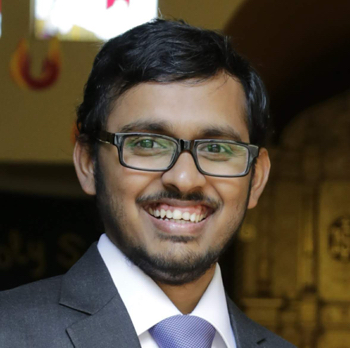By Hari Seshasayee*
NEW DELHI | 11 November 2023 (IDN | ORF) — After three decades of failed attempts by both right- and left-wing governments to bring stability to the Argentine economy, the elections in 2023 offered an opportunity ripe for a political outsider. With inflation at a staggering 138 percent this year, the timing for an anti-establishment candidate to succeed seemed perfect. Javier Milei, a radical ‘anarcho-capitalist’ and libertarian economist, positioned himself as that candidate and captured the limelight.
Milei’s story was captivating and his controversial ideas—to shut down the country’s central bank, dollarise the economy, and allow the sale of human organs—sparked a buzz. Naturally, most analysts assumed that Milei’s rapidly rising popularity in the media would have a direct correlation to his performance in the ballot. Yet, come election day, Argentines chose to remain cautious and gave incumbent economy minister Sergio Massa 36.6 percent of the vote, with Milei trailing at 29.9 percent and Patricia Bullrich, a centre-right candidate, at 23.8 percent, sending Massa and Milei to a run-off vote on 19 November.
This surprising turn of events raises two important questions: Why did an incumbent economy minister who oversaw the country’s economic decline receive so much of the vote? Who will Bullrich’s voters now choose, the moderate Massa or the radical Milei?
During the Cold War, the Argentine economy collapsed, and hyperinflation reached unimaginable levels at 5,000 percent in 1989.
To answer the first question, we must look at Argentina’s past. The South American nation has seen its fair share of ups and downs throughout history. In the early 1900s, Argentina was the fifth-largest economy in the world, and it became the preferred destination for Europeans to migrate to. Argentina’s economic fortunes began to fade after the 1950s. During the Cold War, the Argentine economy collapsed, and hyperinflation reached unimaginable levels at 5,000 percent in 1989.
Naturally, most analysts attribute Argentina’s economic woes to its politicians, who are responsible for safeguarding and steering the economy through difficult times. Through the past half-century, the Argentine economy has been mismanaged by military generals and right-wing and left-wing governments. For many voters this election, the answer was simple: yes, the economy is spiralling, but we know it can get a lot worse.
These voters placed their bets on the devil they know. They do not want to take their chances with Milei and jump into the unknown. Besides, Massa also benefitted from the incumbent machinery and cranked up government spending in the run-up to the elections, and he successfully portrayed himself over the past month as the ‘safer’ choice to a radical Milei.
The second question is more difficult to answer. In a rather simplistic political spectrum, Bullrich and Milei are both right-wing while Massa is left-wing, but nuances are important here: Milei may be more accurately described as far-right, and Bullrich placed as either centre-right or right-wing, while Massa is firmly either left-wing or at best, centre-left. Some Bullrich voters may see Milei as the natural ideological option, not wanting to steer to the left of the spectrum.
However, other Bullrich voters may see Massa as a more moderate option and closer to their comfort zone, shying away from a more radical choice. Just days after the vote, Bullrich publicly lent her support to Milei. Yet, the deciding factor may just be whether Milei or Massa could become more moderate in the remainder of their campaign—whichever candidate does so would have more chances of winning over Bullrich’s voters.
Whoever wins the election, the next Argentine president will inherit one of the toughest jobs in politics in any country in the world today. The roots of Argentina’s economic woes date back more than half a century; it is no little feat that Argentina has defaulted more than any other country in history.
The deciding factor may just be whether Milei or Massa could become more moderate in the remainder of their campaign—whichever candidate does so would have more chances of winning over Bullrich’s voters.
If Massa is elected, we can expect a certain degree of continuity in economic reforms and limited austerity measures. As a Peronist, Massa has some room for manoeuvre. The current avatar of Peronism may be left-wing, but Peronism can change its shape over time and is open to left, centre and right-wing factions. If Massa can distance himself from the more radical elements of his party and focus on a more pragmatic path, he may move closer to the centre of the political and economic spectrum.
If Milei wins, it remains to be seen whether he will, indeed, pursue his radical policies, or if he will try to build bridges and work together with a Congress that will be in the hands of the Opposition. He may even abandon his social agenda in favour of some concessions in the economic camp. Or, he may stick to his campaign promises and attempt to shutter the central bank, massively cut down government ministries and downsize or sell government companies, all while pursuing his social agenda through the liberalisation of gun ownership, sale of human organs, and criminalising abortion. Milei remains a wild card, and difficult to predict—but he may still come out on top.
Argentina may have lost its shine over the years, but the South American nation remains an important regional and multilateral player. India and Argentina enjoy what both countries describe as a ‘strategic partnership,’ and Argentina is part of the G20. New Delhi also has a personal interest in these elections: Argentina was invited to join the BRICS+ grouping earlier this year, but Milei publicly stated that if he is elected, he would not join the group. New Delhi may want to keep its eye on the developments in Buenos Aires and use its goodwill to persuade Milei if elected. [IDN-InDepthNews]

*Hari Seshasayee is a visiting fellow at ORF, part of the Strategic Studies Programme, and currently serves as an advisor to the Foreign Ministry of Panama as well as an Asia-Latin America Expert for the United Nations Development Programme. Hari specializes in India’s foreign policy, the political economy of Latin America and global energy security. He has written for numerous think tanks, universities, book publishers and multilateral institutions, such as the Woodrow Wilson Center, Brookings Institution Press, Routledge, Inter-American Development Bank and Americas Quarterly.
Original link: https://www.orfonline.org/expert-speak/a-battle-between-the-known-and-the-unknown-in-argentina/
Photo source: ORF-Observer Research Foundation
IDN is the flagship agency of the Non-profit International Press Syndicate

